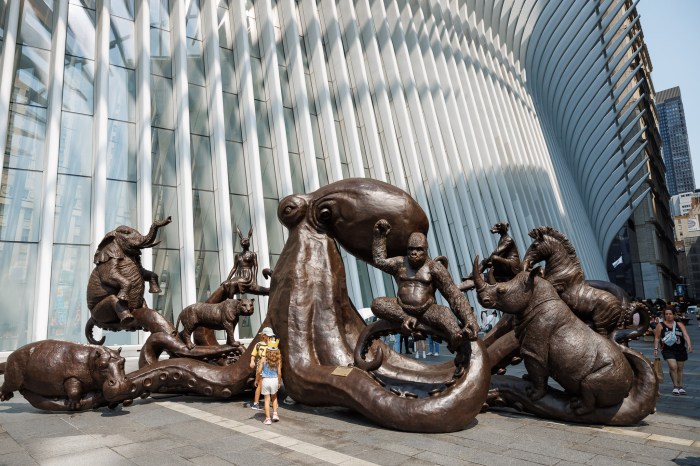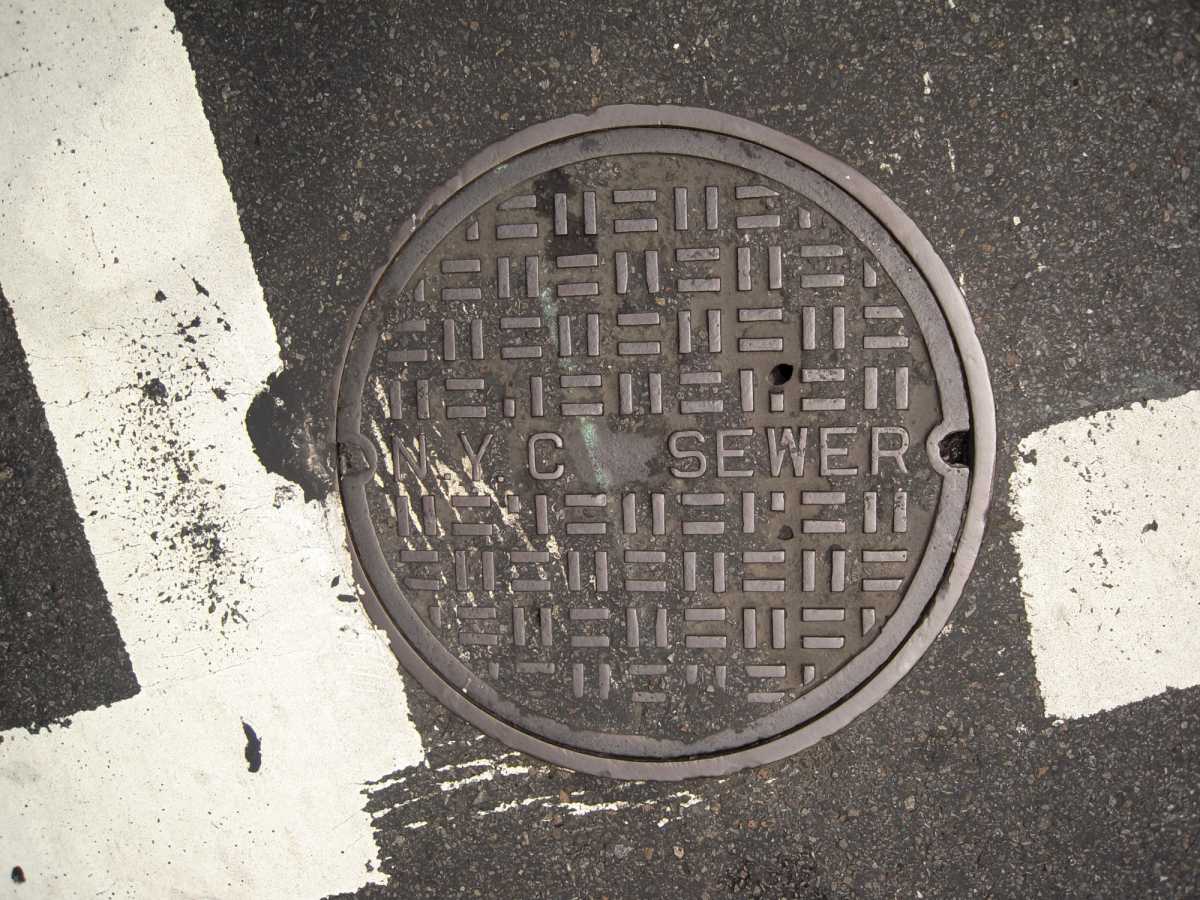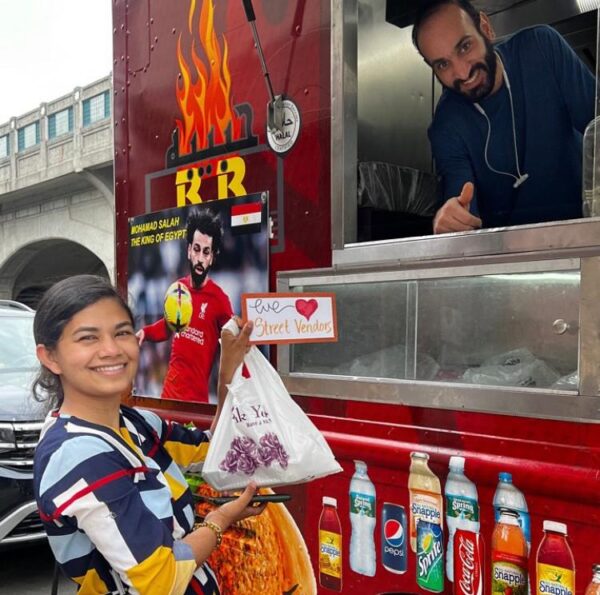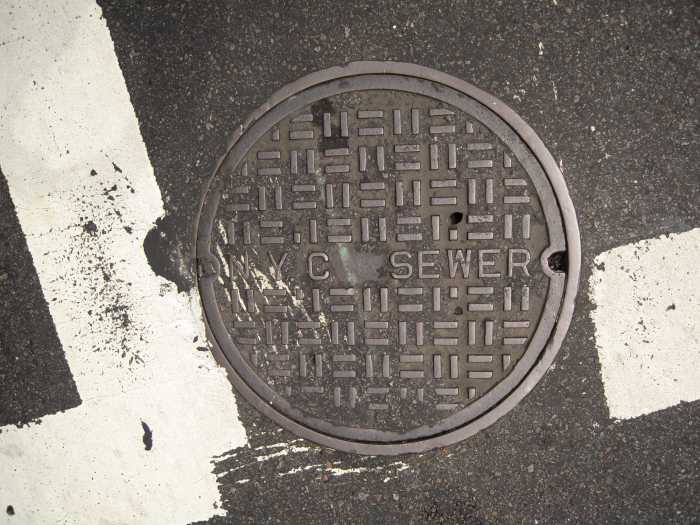
It opened with little fanfare last month, but the soft launch is no indication of quantity or quality: Japan Village is a massive mecca for Japanese food lovers. Across 20,000 square feet, the market-food hall hybrid is a one of a kind in NYC and offers yet another reason to travel to Sunset Park.
Adding to the burgeoning Industry City — after two years in the works — Japan Village quietly welcomed customers on Nov. 17. But, within weeks, it was already enjoying a noisily crowded space and long lines, with patrons flocking for Asian grocery shopping taken to another level.
From the exterior, you’ll know Japan Village by the extensive koi fish murals. Inside, the warehouse space houses the biggest Sunrise Mart in the city — it’s owned by the father and son behind that market, which has three locations in Manhattan — as well as a food court of sorts with several stands, including one sit-down restaurant, a bar and a liquor store.

Japan Village owners Tony Yoshida and son Takuya Yoshida were recruited by Industry City’s director of development Jim Somoza a couple of years ago to give patrons a real Japanese cuisine experience.
“What we wanted was you to go in and truly feel like you were transported to Tokyo,” Somoza said. “It’s very important to us that everything is totally authentic.”
After moving to Brooklyn from Manhattan, where he lived near longtime Japanese grocery store Katagiri, Somoza didn’t find viable options for Japanese groceries in his new borough; this fueled his desire to bring one to Industry City, the multibuilding complex with an array of restaurants, retail shops, offices and a courtyard.
Somoza promptly reached out to the Yoshidas, who also own the popular speakeasy Angel’s Share and Michelin-starred Kyo Ya. The initial plan was to open up another Sunrise Mart, but it quickly snowballed.
“It grew from a 2,000-square-foot Sunrise Mart to a 20,000-square-foot Japan Village,” Somoza said.

Upon entering, on the right side is the newest Sunrise Mart, which offers a wide variety of produce, snacks and other goods imported from Japan. While it sells items similar to ones found in other Asian grocery stores, the selection is extensive for virtually every kind of product.
Customers can find items like the popular Japanese Kit-Kats, which come in flavors (green tea, raspberry, rum raisin) not found in their American counterparts, a big collection of matcha powders, Tohato cookies and other snacks, instant noodles and frozen gyoza. It also has meat, tofu and seafood sections with wagyu, washugyu beef, homemade bean curd and sashimi-grade fish.
With these offerings, “we want to further spread the culture here and highlight all 47 of Japan’s prefectures, especially ahead of the 2020 Tokyo Olympics,” Tony Yoshida said in a statement. He seeks to accomplish this, he noted, through partnering with Japanese companies that have made their products in traditional ways for generations.

Even though it is still in its soft-open phase, the mart is seeing a lot of foot traffic, with checkout lines stretching along the perimeter of the store on a recent visit. Despite the wait, one customer particularly enjoyed this section of Japan Village.
“The most interesting part, for me, is the grocery store. I love to see products from other parts of the world, and they offer a lot,” said Laura Peruchi, an Upper East Sider.
Steps away from the grocery store is a large array of Japanese eats, with both fast-casual and sit-down options — something the other Japanese grocery stores in the city don’t have. Most of the dining spots are stands where customers simply order, pick up the food and sit at nearby tables, which are scattered throughout the space.

Among your options are Café Japon, a coffee shop and bakery; Moriya, serving donburi (rice bowls); Gohei, focused on udon and soba noodles; street food stand Hachi, with takoyaki and okonomiyaki (octopus balls and savory pancakes, respectively); and ramen-centric Setagaya. The casual food stands are priced cheap to moderate, depending on the booth, going from $3 for an onigiri, or rice ball, to $15 for a bowl of black garlic ramen. And at Gohei and Setagaya, customers can sit right in front of the chefs and watch them prep their meal.
Adding to the mix is sit-down restaurant Wakuwaku, an izakaya and cocktail bar with a menu of Japanese-style tapas, skewers and sashimi planned for its January opening. Also still to debut is liquor store Kuraichi, with sake and Japanese whiskey among its offerings.

And there’s more.
Plans are underway for a targeted summer 2019 reveal of a second floor, with items expanding beyond foods to cosmetics, pottery and paper goods. All will be imported from Japan, with the Yoshidas tapping small to midsize exporters who usually don’t have the means to sell their products overseas.
“The idea is to bring all of these additional products made traditional ways,” Somoza said.
Going forward, Tony Yoshida seeks to continue sharing “everything we love about Japan with our local community in a fun and authentic way." And Somoza promises to keep that authenticity.
“My only real goal is, and I know this is going to happen, I want it to maintain a very authentic Japanese feel and experience,” he said. “That is very, very important to us.”

Japan Village, 934 Third Ave.; japanvillage.com.
Hours (market and food hall): 11 a.m.-7 p.m. daily

































